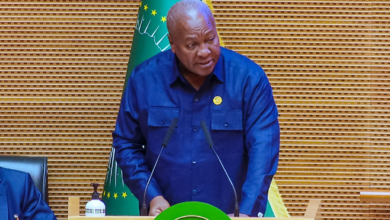
By Marwa Sid Ahmed, in Algiers
For several decades, Algeria and France have experienced tensions fueled by various diplomatic actors from both countries. Beyond a complex history and a tense current situation, economic relations bind the two nations.
Trade between them is estimated at 7 billion euros per year, spanning hydrocarbons, infrastructure, and telecommunications. In 2022, trade resulted in a 900-million-euro surplus for Algeria, according to the Algerian Ministry of Commerce and French Customs. France has invested over 3 billion euros and remains one of Algeria’s top foreign investors.
Algerian exports, valued at 4.2 billion euros, are dominated by hydrocarbons (about 3.4 billion euros, or 80%), followed by chemical products (10%), and agricultural, textile, and manufactured goods. Imports from France, estimated at 3.3 billion euros, include industrial machinery (30%), pharmaceuticals (15%), agri-food products (10%), automobiles (10%), and technology services. France remains a strategic partner, accounting for 10% of Algeria’s foreign trade, compared to less than 1% for France, according to INSEE (National Institute of Statistics and Economic Studies) and reports on Algeria’s external trade.
For now, trade has only declined by 4.3% overall, and France remains strongly present through its businesses
According to various reports from the Algerian Chamber of Commerce and Industry (CACI), approximately 1,200 Algerian companies export to France, 70% of which are SMEs and micro-enterprises, while over 400 French companies operate in Algeria, mainly in energy, services, and agri-food sectors. The hydrocarbon sector, dominated by about twenty major Algerian companies, remains a pillar of exports. These bilateral exchanges support more than 50,000 jobs in Algeria.
Many business owners confirm the impact of these exchanges, such as a date exporter for whom France accounts for 30% of his revenue, or a French IT company for which Algeria represents 15% of its international activity.
Although the business climate appears favorable, recent tensions have led Algeria to reduce French economic presence by excluding French companies from wheat import tenders, favoring Russian suppliers and other partners. This is not merely a diversification effort but rather a sovereign approach asserted by Algeria.
Adel Abderezak, a university professor of economics in Algeria, tempers the impact of these tensions: “For now, trade has only declined by 4.3% overall, and France remains strongly present through its businesses, particularly in major hydrocarbon sector investments in the Algerian Sahara (Total), the pharmaceutical industry through partnerships (Aventis, Sanofi), as well as in agri-food and the financial and banking sector (Natixis, Société Générale, BNP Paribas),” he explains. He also highlights that “more than 450 French companies are well established and understand the Algerian market and its political-economic parameters. Partnerships with public and private sectors remain significant despite legal constraints and political uncertainties in Algeria.”
Italy overtakes France as Algeria’s leading EU supplier
Meanwhile, other partnerships are developing, notably with Italy. During his visit to Algiers, Italy’s Deputy Prime Minister and Minister of Foreign Affairs, Antonio Tajani, emphasized the importance of the historical partnership between Algeria and Italy, particularly in the energy sector. Thanks to the ENI-Sonatrach agreement signed in April 2022, Algeria has become Italy’s primary gas supplier, covering 39% of its imports. The two countries are also strengthening cooperation in renewable energy through the SoutH2Corridor project.
Beyond energy, Italy is investing heavily in Algeria, especially in industry and agriculture. Notably, the Fiat factory in Oran, inaugurated in 2023, marks a turning point for the manufacturing sector. In agriculture, the Italian group Bonifiche Ferrarisi is investing 420 million dollars in a 36,000-hectare project in Timimoun, creating 6,700 jobs and supporting local production. The country aims to increase cultivated land to 500,000 hectares in the South to meet national needs and achieve self-sufficiency.
Faced with these dynamics, Adel Abderezak, a specialist in international economic relations and author of a book on Algeria and China, observes: “Italy overtakes France as Algeria’s leading EU supplier. This is not a strategic repositioning but rather a cyclical shift. It will become strategic when Algeria decides to sever its historical ties with France and projects itself into geopolitical scenarios that break away from France’s economic and political influence, which remains structural in Algeria.”
A Gradual Redefinition of Algeria’s International Partnerships
Furthermore, Algeria is preparing to launch an ambitious agricultural project focused on planting argan trees in several wilayas. Announced by Agriculture Minister Mohamed Abdelhafid Henni, this project aims to diversify the economy and enhance local natural resources. The initiative relies on a strategic partnership between the government and an Algerian-Italian company specializing in argan tree production. Leveraging modern technologies, Algeria intends to produce sufficient quantities to establish an economic sector around argan oil. Beyond its agricultural aspect, this significant initiative is also part of a broader realignment of the country’s trade alliances. As the Algerian expert notes: “For now, Algeria can sideline French trade flows in favor of privileged exchanges with Italians, Spaniards, and Chinese. But it cannot completely turn its back on French flows, given the dependency chains and strategic interests shared with governing elites.”
Thus, this agricultural project not only reflects economic development ambitions in a highly strategic region but also illustrates a gradual redefinition of Algeria’s international partnerships.
For Algeria, losing France as a trade partner would be significant, but it could redirect its hydrocarbon exports to other markets…
A rupture in economic relations between Algeria and France would have significant consequences for both nations, but the impact would be more pronounced for France. In 2023, bilateral trade reached a record 11.8 billion euros, according to data from the French Treasury Directorate, with Algeria ranking as France’s 21st trade partner.
French exports to Algeria totaled 5.5 billion euros, while imports, mainly hydrocarbons, amounted to 6.3 billion euros, according to the French Treasury Directorate’s report.
France is Algeria’s second-largest supplier, behind China, and its third-largest customer. A rupture would impact French companies, particularly SMEs, which would lose a key market.
Additionally, sectors such as agri-food would suffer, as Algeria has already excluded France from its wheat import tenders due to diplomatic tensions.
For Algeria, losing France as a trade partner would be significant, but it could redirect its hydrocarbon exports to other markets, particularly in Asia or Africa. However, this reorientation could take time and require logistical adjustments. Ultimately, while both countries would incur losses, France could be more affected due to its dependence on the Algerian market for certain exports.






